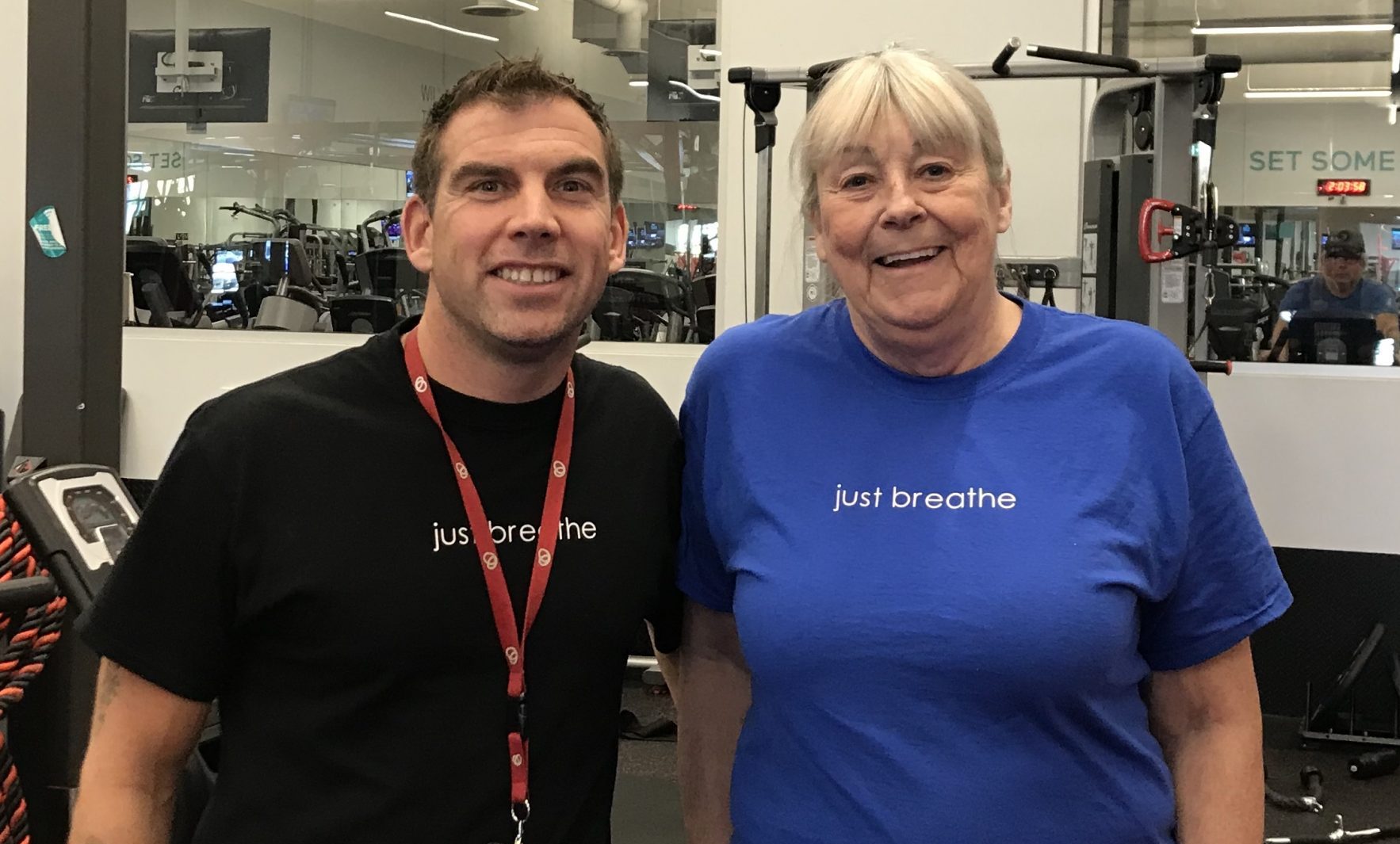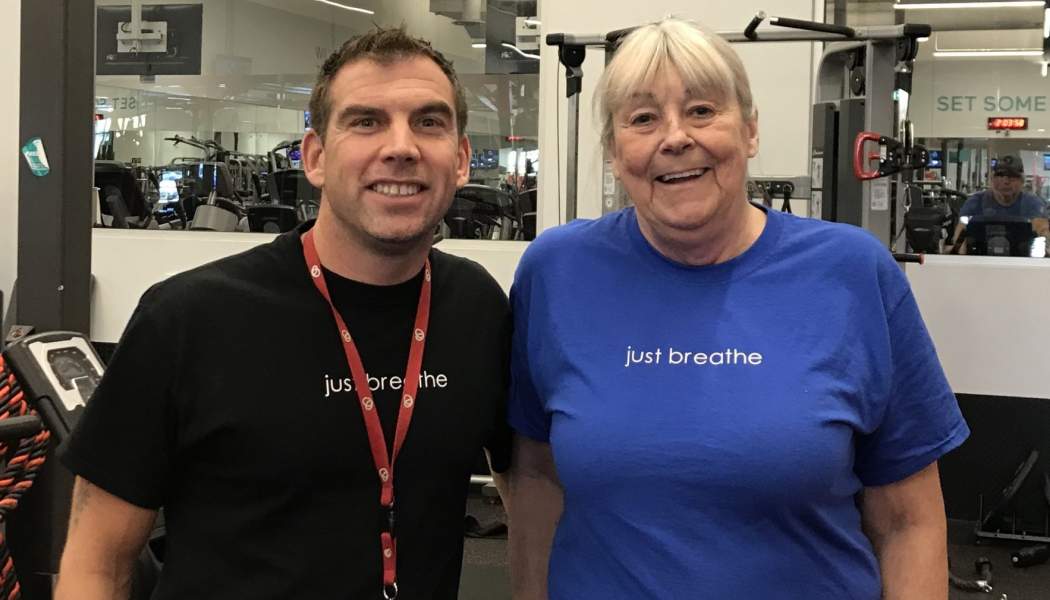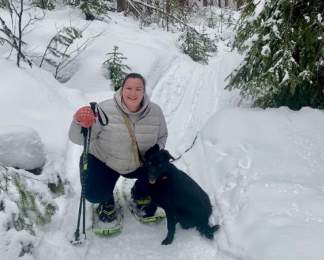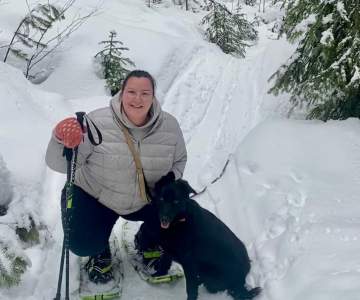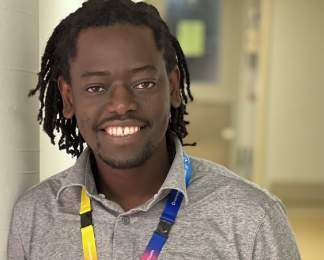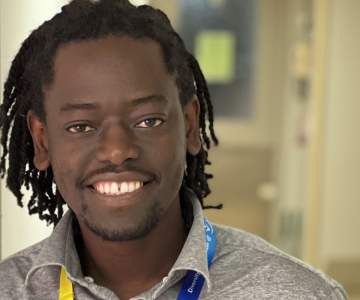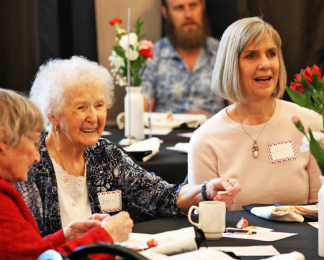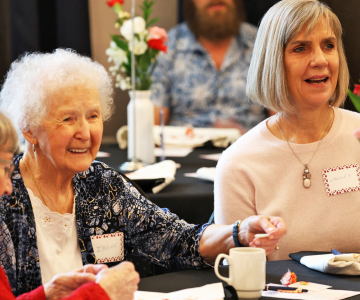As she tells her story, Shelley Rowe’s eyes well up with emotion. Her stress level spikes momentarily, which triggers a slight cough. Yet in spite of an occasional flare-up, her breathing is more relaxed than it’s been in years.
Shelley, now 62, started smoking when she was 14 years old. Her doctor diagnosed her with Chronic Obstructive Pulmonary Disease (COPD) in 2006. COPD is an umbrella term for progressive lung diseases such as emphysema and chronic bronchitis. People with this condition often feel short of breath. In Shelley’s case, COPD often leaves her with a terrible, panicky feeling of not being able to breathe.
Shelley managed to quit smoking for a year after her diagnosis. Then, when Shelley was 51, her husband passed away suddenly, and over the next decade other members of her family suffered different physical and psychological traumas. She turned again to cigarettes to help cope with the immense stress of these events. But the pressure of her personal situation, and the addition of smoking, combined to trigger bouts of bronchitis.
“With my health deteriorating, the tipping point came in 2016,” says Shelley.
She had remarried years before to her old high school sweetheart, Dave, also a smoker. Witnessing her struggle to breathe one day, Dave called 911. Shelley was admitted to hospital with septic pneumonia and liver failure. Her care team placed her on life support. It was so bad, at one point they discussed with her if she had her affairs in order.
But she was able to recover, slowly. After two weeks she was off the ventilator and breathing on her own. Severely weakened, she returned home equipped with a walker and shower stool. Still smoking and desperate for help, she reached out to the Respiratory Club at Dorchester Retirement Residence, and discovered the Pulmonary Rehab Program.
The program consisted of education and exercise, including two gym sessions per week. At one of these gym visits, she crossed paths with Julian Kirschner, a respiratory therapist with Interior Health.
“Julian was helping another woman on a treadmill,” says Shelley. “While I was waiting, my pulse started racing. I was seized by anxiety and desperate to leave.”
Julian walked over and talked her through her breathing. She didn’t have to do the workout, he said. She could just sit for a while.
“If Julian let me leave, I wouldn’t have come back,” says Shelley.
She committed to the gym sessions, but she was still smoking. She would put out her cigarette before going into the gym, then light up again when she left. Julian told her if she ever wanted to quit, she could talk to him. However, he was clear that she would have to do the work.
Eventually she took him up on his offer and the day after her birthday, three years ago on Sept. 6, she quit. Her husband Dave quit shortly thereafter. Neither has taken a puff since.
Fast forward to today and Shelley has newfound health and confidence. Where she would once tire after only a few minutes on a stationary bike, now she can spin comfortably for half an hour. She works out four days a week doing half an hour each of cardio and resistance training.
Shelley has also become a mentor and support to others in the program. The program’s close-knit community is a key part of its success.
We are like a family in many ways. We know what it’s like to have a bad day and always encourage each other. We pick up the phone when one of us doesn’t show at the gym and accompany each other to doctor appointments.
–Shelly Rowe
Like other respiratory therapists, Julian is trained to help rehabilitate those in the program. However, he also personally understands how mental health is linked to physical health. Having served as a medic in Afghanistan, he also copes with the trauma of his experience through exercise. In May 2020, he will compete as a veteran in the Invictus Games at The Hague.
“We can relate to each other,” says Julian. “When they are struggling, I can empathize with how they feel. But whatever their condition, whether asthma or COPD, it doesn’t define them. They have true grit. In a safe manner, they push themselves past their expectations.”
Pulmonary Rehab partners with nine gyms throughout Kelowna, Lake Country, and West Kelowna. At full capacity, Julian and his colleagues see 120 clients every 10 weeks. The clients sport T-shirts with “Straight out of rehab” on the back and “Just breathe” on the front.
“Just breathe” is a fitting mantra. To focus on our breath is to focus on our well-being.
“Some days it is a struggle,” says Shelley. “But it’s worth it. I probably wouldn’t be here today if not for Pulmonary Rehab.”
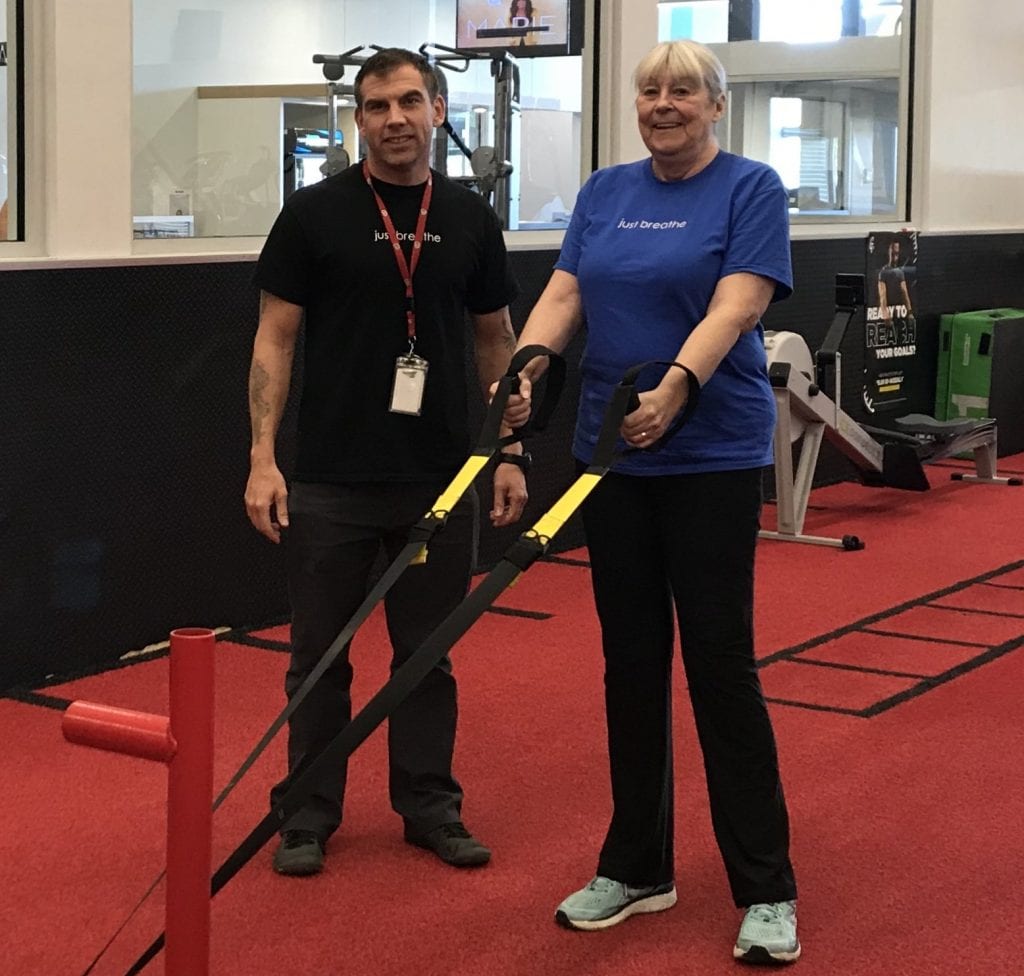
If you or someone you love has heart and lung health issues, Respiratory Therapy Services might be able to help.
